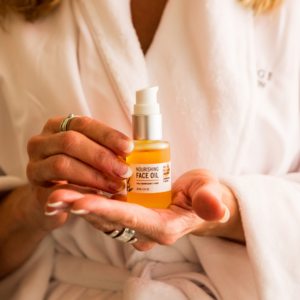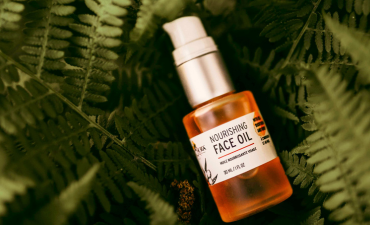Face oils have become an essential part of skincare routines for their ability to nourish, protect, and enhance the skin’s natural glow. They provide hydration, target specific skin concerns, and help maintain a healthy complexion. Whether you have dry, oily, or sensitive skin, incorporating the right face oil can bring numerous benefits. In this guide, we will explore the best face oils, their benefits, and how to choose the right one for your skin type.
Why Use Face Oils in Your Skincare Routine?
Deep Hydration and Moisture Retention
Face oils act as an occlusive barrier, sealing in moisture and preventing dehydration. They work well with moisturizers to enhance hydration, making them ideal for dry and combination skin types.
Anti-Aging Properties
Many face oils contain antioxidants and essential fatty acids that help combat signs of aging. They promote collagen production, improve elasticity, and reduce the appearance of fine lines and wrinkles.
Balance Oil Production
Contrary to popular belief, face oils can be beneficial for oily and acne-prone skin. Certain lightweight oils help regulate sebum production, preventing excessive oiliness and breakouts.
Soothing and Calming Effects
For those with sensitive or irritated skin, face oils can provide soothing properties. They help reduce redness, inflammation, and irritation caused by environmental stressors.

Best Face Oils for Different Skin Types
Face Oils for Dry Skin
Dry skin requires rich, deeply nourishing oils that provide long-lasting hydration. These oils contain essential fatty acids that strengthen the skin barrier and prevent moisture loss.
- Hydrating Oils: Look for oils rich in omega fatty acids that help restore skin moisture.
- Soothing Oils: Certain oils have calming properties that reduce dryness and irritation.
- Application Tip: Apply a few drops to damp skin for better absorption and hydration retention.
Face Oils for Oily and Acne-Prone Skin
Lightweight, non-comedogenic oils can help balance sebum production and prevent clogged pores. The right oils provide hydration without making the skin greasy.
- Balancing Oils: Some oils help regulate natural oil production, reducing excess shine.
- Antibacterial Oils: Look for oils with natural antibacterial properties to help keep breakouts under control.
- Application Tip: Use only a few drops and press the oil into the skin instead of rubbing it in.
Face Oils for Combination Skin
Combination skin requires oils that provide hydration without overwhelming oily areas. Lightweight, fast-absorbing oils work best to balance the skin.
- Multi-Tasking Oils: Oils that hydrate dry areas while controlling excess oil are ideal.
- Application Tip: Apply the oil to dry areas while avoiding the T-zone if necessary.
Face Oils for Sensitive Skin
Sensitive skin benefits from gentle, fragrance-free oils that calm and protect against irritation.
- Soothing Oils: Oils with anti-inflammatory properties help reduce redness and sensitivity.
- Hypoallergenic Oils: Choose oils known for being non-irritating and gentle on the skin.
- Application Tip: Always do a patch test before using a new oil to ensure it doesn’t cause irritation.
How to Incorporate Face Oils into Your Skincare Routine
Applying Face Oil Correctly
To get the most out of face oils, proper application is key:
- Apply after water-based serums but before or mixed with your moisturizer.
- Use a few drops and gently press them into your skin.
- Allow the oil to absorb before layering other skincare products.
When to Use Face Oils
- Morning: Lightweight oils can be used in the morning to add a natural glow and protect against environmental stressors.
- Night: Heavier oils work well at night, aiding in skin repair and hydration during sleep.
Pairing Face Oils with Other Skincare Products
Face oils complement various skincare products:
- With Moisturizers: Lock in hydration by applying oil after your moisturizer.
- With Serums: Use oils after serums to maximize their absorption.
- With Sunscreen: Apply sunscreen as the last step to ensure proper sun protection.
Common Mistakes to Avoid When Using Face Oils
Using Too Much Product
A little goes a long way with face oils. Using too much can make the skin greasy and clog pores.
Choosing the Wrong Oil for Your Skin Type
Not all face oils are suitable for every skin type. Choose oils based on your specific skin needs to avoid irritation or excess oiliness.
Applying Oils in the Wrong Order
Applying oil before water-based products can prevent proper absorption. Always apply oils as the final step before sunscreen or moisturizer.
Conclusion
Incorporating face oils into your skincare routine can provide deep hydration, anti-aging benefits, and improved skin health. Whether you have dry, oily, combination, or sensitive skin, selecting the right oil can enhance your routine and help you achieve a glowing complexion. Remember to apply the right amount, choose oils suited to your skin type, and use them consistently for the best results.

